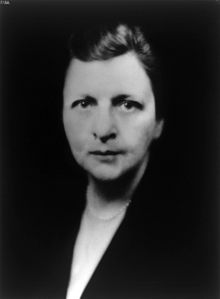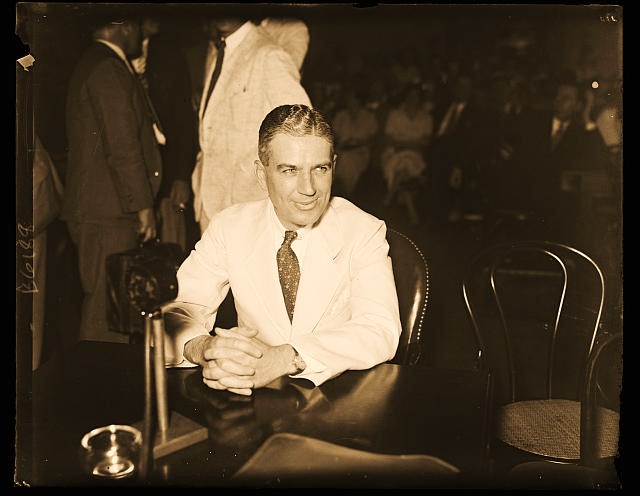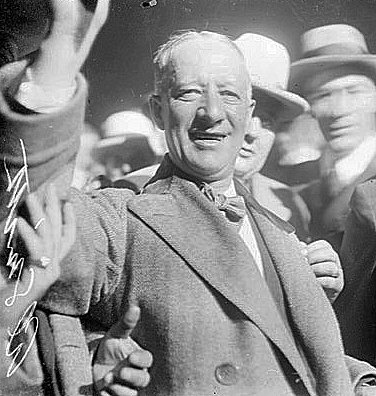Part II: Garner’s Cabinet
Garner had about two weeks to vet a cabinet before he assumed the Presidency, and Democratic operatives warned him that it would be prudent to get the job early. Garner had never faced a project of this magnitude before. His memoir,
Happy Days Are Here Again, published years later in 1950, revealed that Garner was nearly clueless on how to build a working administration. In the House of Representatives, he had the heads of Committees, not to mention the entire Democratic Caucus who would answer to him. This was Garner’s first ever executive decision. He was utterly alone as the country still reeled from FDR’s assassination. If he failed at this, then he would cripple his Presidency from the offset, a position which, in his view, rightfully wasn’t even his. The stakes were high. Garner, therefore, began to assemble a group of advisers who he believed in. They consisted of his allies from his time in the legislature, and more importantly, Franklin Roosevelt’s esteemed “Brain Trust.”
Garner’s hope was that this unity would tie together the more traditional (moderate, Wilsonian progressive, and conservative) wing(s) of the party with the more unknown branch of the party, which included those activists and scholars who had backed Roosevelt and built up his policies behind the scenes. Garner fought for party unity very heavily during those few weeks as President-Elect. Again in his memoir, Garner writes of a conversation between him and the man destined to be his successor as House Speaker: Henry T. Rainey:
I implored Rainey to focus on one major element during his Speakership: keeping the party in line and voting for my administration’s bills as much as possible, so we could override the threat of a coalition against us. Rainey replied that it wasn’t possible to keep a Caucus that large voting as a monolith, that there would be defections, that it would be impossible to get Clifton Woodrum (a progressive) and Howard Smith (the leader of the anti-administration movement during my term) to agree on the position of the sun in the sky, much less on any key policy issue. I looked Rainey right in the eyes and told him that was why I was reaching out to Roosevelt’s allies. “There’s no time for careful deliberation right now. To fix the goddamn country, we gotta reach out to everyone who can help us.” I then told Rainey to get to work unifying the party, and he obliged.
To Garner, the most critical Cabinet position at the time was Secretary of the Treasury. That would be his first nomination. The Brain Trust suggested William Woodin, a New York City industrial magnate, and Henry Morgenthau, another NYC businessman, for the pick. Even though both men were impressive, Garner took into consideration Woodin’s old age and poor health and Morgenthau’s lack of experience in the treasury and rejected both in favor of a tentative Roosevelt ally, Al Smith.
Al Smith immediately after his nomination
The Brain Trust was less than happy with Garner’s pick, as they felt that Smith’s economic views were too conservative. Garner recognized the dissatisfaction and announced on February 25 his next nominee: Rexford Tugwell for the Department of the Interior. Tugwell was a personal friend and ally of FDR’s, and he accepted the nomination with pleasure, promising to inject some of Roosevelt’s policy views directly into his job. Garner also announced that day his pick for Agriculture Secretary, Henry Wallace, which also appeased the Brain Trust.

The President-elect next nominated for Secretary of War a Republican progressive who had opposed the FDR/Garner ticket, publisher and Major Frank Knox. Republicans were satisfied, as were moderates and Republican progressives who weren't fully comfortable with the movement that Roosevelt had started. Garner's attempt to forge unity was working, save the selection of Smith as Treasury Secretary. However, Garner saw no problem with his nominations and continued at a rapid pace. Next, on the 26th, Garner nominated someone to appeal to conservatives: Supreme Court Justice Pierce Butler (a Democrat) as Attorney General. In the upcoming years, this nomination would be both a blessing and a curse.

Garner was interested in appointing his protege, Sam Rayburn, as Secretary of Labor. Every one of his advisers agreed to his pick, and he was only an hour away from announcing the nomination when SCOTUS Justice and Roosevelt ally Louis Brandeis met Garner in his office in the Capitol and recommended that Garner pick Brain Trust member and crusader for labor rights Frances Perkins. Garner was virulently opposed to this. He'd already written a speech. He'd made a decision, and he wanted to stick with that decision. The announcement was scheduled to be in an hour. Brandeis believed that Rayburn wasn't experienced or dedicated enough to be Secretary. The argument between Garner and Brandeis continued for another twenty minutes, until Brandeis left angrily. An hour later and half an hour later than planned, Garner nominated Frances Perkins to be Secretary of Labor. He had realized that he didn't want to antagonize some of his tentative allies, especially Brandeis, who he needed the support of on the Supreme Court. Assuming Perkins' nomination went as planned, she would be the first female Cabinet member, breaking an enormous precedent.

Frances Perkins, Secretary-designate of Labor
Regardless, two Cabinet members, Smith and Perkins, and the controversy surrounding their nominations, had already caused a small rift between Garner and some of his most important advisers. Garner now had two days left to finish his nominations before preparations for the Inauguration began in earnest. For Garner and his agenda, it was full speed ahead.








